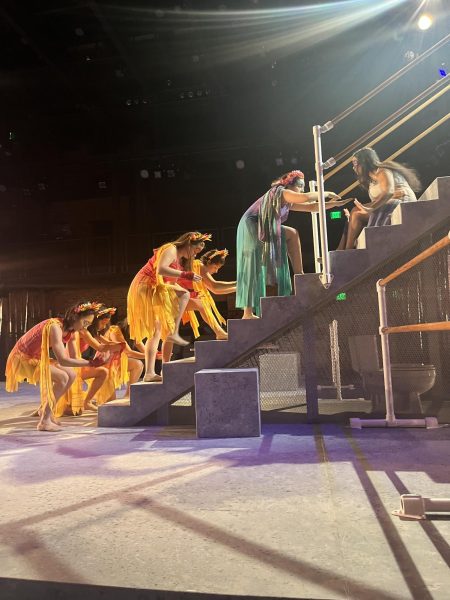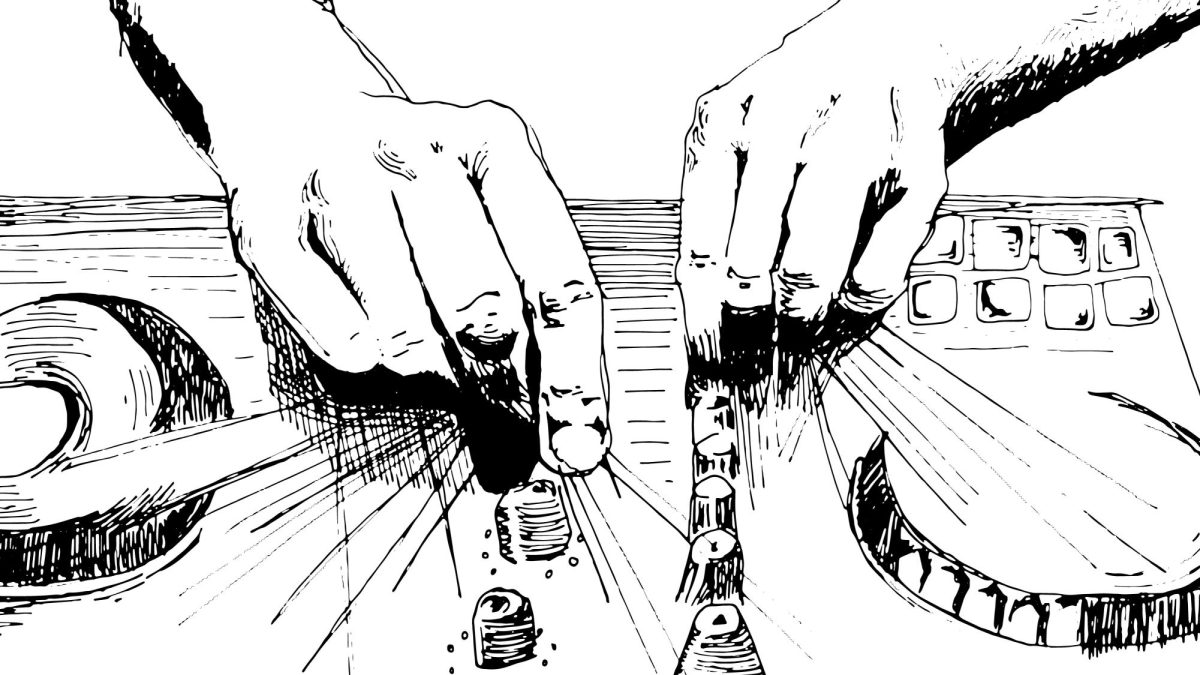
The theatre department will showcase playwright Clare Barron’s Dance Nation as this year’s fall show. The play, which combines lyrical dance and dramatic comedy, is an unapologetic portrayal of girlhood, youth, competition, and ambition.
One of the directors of Dance Nation, Professor of Theatre Amy Holzapfel, first heard about the play through the honors thesis project of one of her students, Fiona Selmi ’21. Selmi’s production was performed by students at the College as a staged reading over Zoom during the pandemic. “I was sort of haunted by the play, and I thought, ‘We should try to do this in real life,’” Holzapfel said.
Associate Director Sophia Rothman ’25 enjoyed the intentionally “unhinged” script. “The explicit nature of it in a way doesn’t feel like it’s just explicit to be explicit, and it doesn’t feel [like it’s] vulgar just to be vulgar,” she said. “It’s shocking, but it’s not shocking for the shock value only. Those words are meant to be there.”
Holzapfel encouraged actors in Dance Nation to take risks and approach their characters in the ways they found fit. The content of the play has made every scene an effort of collaboration. “Making sure that everybody felt like they had a hand in telling the story was central,” Holzapfel said.
Given that the show touches upon intimate and vulgar discussions, it has been important, Holzapfel said, to welcome actors to participate as much as they feel comfortable and provide them with support. “We worked very closely with an intimacy coordinator and choreographer, Veronica Burt, on this project,” Holzapfel said. “We couldn’t have done this play without her.”
The team has also spent a great deal of energy to make sure that everyone collaborated to tell this story in a way that feels safe for them. “[Burt] was working with the actors even before auditions to figure out how to tell the story in a way that allowed us to take all the risks we wanted, but feel safe with them and ready and prepared,” Holzapfel explained.
Actors are involved in every aspect of the show — most notably, in the choreography. Artist-in-Residence in Dance Erica Dankmeyer, the choreographer of the show, encouraged actors to share movement and vocabulary. Holzapfel noted how some dances were built spontaneously in the studio. “The movement had to be movements that the actors felt they wanted to do,” Holzapfel said. “We were very resistant to telling people to do anything that they didn’t feel they wanted to do.”
Despite the fact that the play is about 13-year-olds, the characters are not meant to be played by teenagers. However, having a cast of college students is still a different approach than what was intended for the original play. Most stagings cast women from all age groups to play these roles.
“There’s an element in which the bodies of older women playing younger women has the feeling of being a ghost of a former self and carrying all of those ages in your body even though you’re not that age, that we can’t approach in the same way [with] having a full college-age cast,” Rothman said.
Holzapfel also commented on having a college-aged cast for Dance Nation. “The characters are haunted by their older selves — by the specters of their older selves and their older bodies,” Holzapfel said. “That disconnect is very clear… There’s a difference there because it’s easier to buy into a 20-year-old being a 13-year-old than a 50-year-old.”
Co-choreographer Casey Monteiro ’24, who plays Ashley, a “potty-mouthed 13-year-old,” explained how the show manages to uniquely portray teenage girls. “Usually in theatre, if there’s a 12- or 13-year-old girl in the show, she’s probably just someone’s daughter who’s young and sweet and innocent,” she said. “This is the complete opposite of innocence.”
Saumya Shinde ’26, who plays Connie, said that parts of her own experiences with girlhood allowed her to portrary the role differently. Her character is the only Indian girl in the dance class and deals with cultural appropriation as she faces the challenges of adolescence.
“It was interesting to tap into my childhood memories of being at the receiving end of cliques and of having been mean to others as kids are to each other,” Shinde told the Record. “Exploring the ever-changing dynamics within the cast as the play progresses and trying to be empathetic to Connie’s behavior and actions has been a challenging yet rewarding experience.”
Shinde also noted that each character in Dance Nation contains their own novel sense of moral ambiguity.
“No one is outright right or wrong, and I can see everyone’s perspectives in any given scene, which makes the scenes even more realistic when they sit in those gray zones, compelling me to find a deeper intent behind my character’s actions,” she said.
When asked about why the audience should watch the show, Holzapfel expressed her excitement by saying, “It rocks. It’s awesome.”
Dance Nation premieres on Nov. 9 and runs until Nov. 11 in the ’62 Center for Theatre & Dance.







